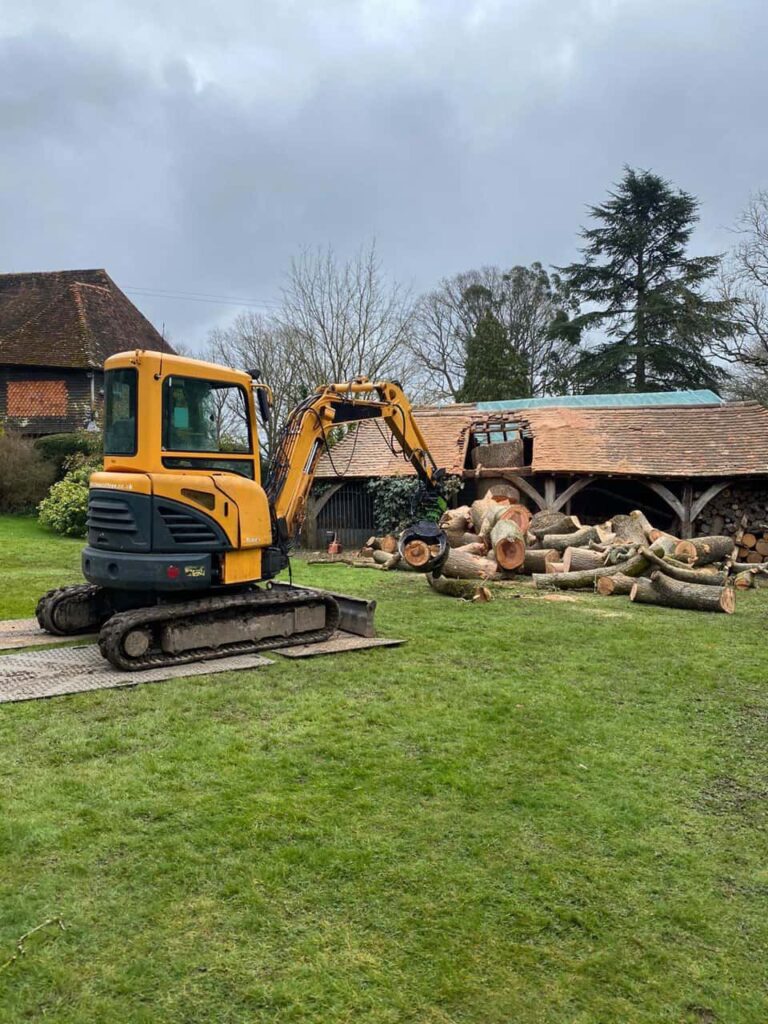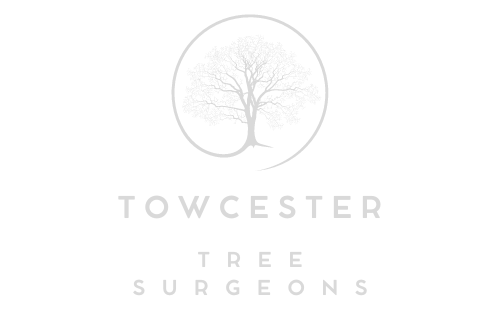When Tree Surgery Is Not Enough — and Removal Is the Only Way
Tree surgery is often the preferred option when managing trees on private or commercial land. Pruning, crown reduction, bracing, and deadwood removal are all effective methods of prolonging the life of a tree while keeping it safe. However, there are situations when even the most skilled tree surgery is not enough—and full removal becomes the only safe and sensible course of action. At Towcester Tree Surgeons, we help property owners across Towcester, Northamptonshire make informed decisions about when tree removal is necessary.
The Role of Tree Surgery in Preservation
Tree surgery techniques are designed to preserve the health, structure, and safety of trees. These include:
- Crown thinning to reduce wind resistance
- Crown lifting to improve clearance and light access
- Pollarding or formative pruning for younger trees
- Deadwood removal to prevent falling branches
In many cases, these methods are enough to restore a tree’s balance, manage its growth, or reduce risk. However, trees are living organisms, and like all living things, they can suffer irreparable damage or disease.
When Tree Removal Becomes Necessary
There are several circumstances where removal becomes the only appropriate option. These typically relate to safety, environmental impact, or structural integrity.
1. Structural Instability or Severe Leaning
If a tree has developed a pronounced lean or root plate failure (where the roots begin to lift from the ground), it poses a serious risk of falling. Even if the tree appears otherwise healthy, structural instability cannot always be corrected through pruning alone.
Signs include:
- Cracks in the soil around the base of the trunk
- Heaving or shifting of the root system
- Sudden leaning after storms or high winds
2. Extensive Disease or Decay
While some fungal infections or diseases can be managed, others spread rapidly and compromise the tree’s core structure. In these cases, removal is often the only way to prevent hazards and protect nearby vegetation.
Common issues include:
- Fungal fruiting bodies (e.g. honey fungus, Ganoderma)
- Severe bark loss or cavities
- Hollow trunks or extensive rot
At Towcester Tree Surgeons, we can provide a detailed diagnosis to determine whether a tree is treatable or if removal is the safer option.
3. Root Damage and Subsurface Conflict
Tree roots can interfere with underground infrastructure, including:
- Foundations and footings
- Drainage systems and pipework
- Pavements, roads, and driveways
If a tree is causing structural damage and root pruning would not be effective—or would risk destabilising the tree—removal may be the only viable solution.
4. Overcrowding and Site Redevelopment
On some properties, especially those undergoing redevelopment or landscaping changes, tree removal is required to clear space or manage overcrowding. In woodlands or large gardens, trees may grow too closely together, competing for light and nutrients. Strategic removal may be used to:
- Improve the health of surrounding trees
- Clear land for new building work
- Prepare sites for hard landscaping or driveways
Our team works closely with developers, architects, and homeowners across Towcester, Northamptonshire to deliver clear, safe, and efficient site clearance when needed.
5. Storm Damage or Lightning Strike
Sudden, severe weather events can compromise a tree beyond recovery. If a tree has split, lost major limbs, or suffered a lightning strike, it may be unsafe to leave standing—even if the damage appears localised.
In these cases, emergency tree removal ensures public and property safety.
The Dangers of Delaying Tree Removal
Delaying necessary removal can have serious consequences, including:
- Risk of injury or damage to nearby buildings
- Increased liability for homeowners or landowners
- Spread of disease to other trees or hedges
- Higher costs due to emergency callouts or complex dismantling later
At Towcester Tree Surgeons, we advise clients to act early if there is any uncertainty around a tree’s condition or structural integrity.
Responsible Tree Removal and Aftercare
Tree removal is never our first choice, but when it is needed, we ensure it is carried out responsibly and professionally. Our process includes:
- A full site assessment
- Risk evaluation and safety planning
- Sectional dismantling where required
- Use of cranes or elevated platforms for large or awkward trees
- Stump grinding and ground reinstatement
- Advice on replanting or replacing lost trees
We also help navigate Tree Preservation Orders (TPOs) and local authority permissions where necessary.
Conclusion
While tree surgery is often enough to extend a tree’s life or reduce its risks, there are situations where removal is the only safe and practical option. Whether due to disease, structural failure, or site redevelopment, professional removal ensures safety, legal compliance, and peace of mind.
If you’re unsure whether a tree on your property needs surgery or full removal, contact Towcester Tree Surgeons. Our experienced team in Towcester, Northamptonshire will assess the situation and provide honest, expert advice tailored to your specific circumstances.
Call us on: 01327 221 399
Click here to find out more about Towcester Tree Surgeons
Click here to complete our contact form and see how we can help with your tree care needs.

